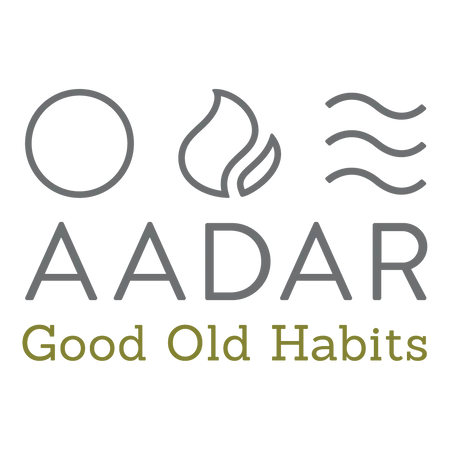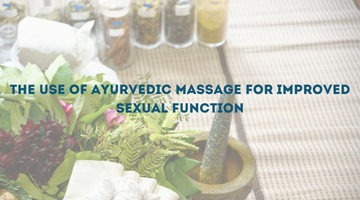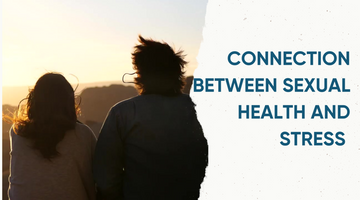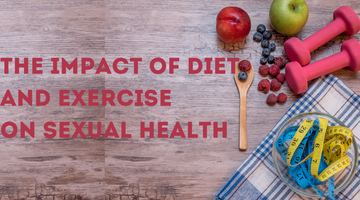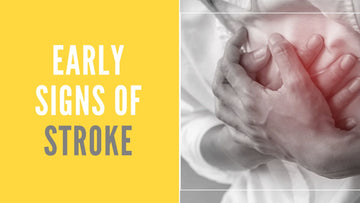
On October 29, World Stroke Day is observed to raise awareness and advocacy campaigns, as well as to build commitment to reducing the global, regional, and local burden of stroke. World Stroke Day amplifies individual voices by bringing more people into the conversation about stroke prevention, treatment, and support.
Stroke is the leading cause of death worldwide. There are 80 million stroke survivors in the world, 50 million stroke survivors live with some form of permanent disability, and for many, life after a stroke will not be the same; however, with the right care and support, living a meaningful life is still possible and to get #UpAgainAfterStroke.
What Exactly Is A STROKE?
A stroke is a medical emergency that occurs when the blood supply to a portion of the brain is severely reduced, causing brain tissue damage. This has an impact on a person's appearance, speech, vision, and bodily functions. Stroke is the leading cause of death and disability in the world. It can happen to anyone, at any age, and has ramifications for survivors, family and friends, workplaces, and communities.
HISTORY OF WORLD STROKE DAY
The European Stroke Initiative had the idea to create a global stroke awareness day in the 1990s. Due to financial constraints, the awareness day was only held in Europe. On May 10th, the country observes an awareness day. At the World Stroke Congress in Vancouver in 2004, a World Stroke Day was established.
Dr. Vladimir Hachinkski, a Canadian clinical neuroscientist, was instrumental in incorporating the World Stroke Proclamation in 2006. The International Stroke Society merged with the World Stroke Federation at the time. The World Stroke Organization was formed as a result of this merger (WSO). On October 29th, 2006, the World Stroke Organization (WSO) hosted the first official World Stroke Day.
Early Warning Symptoms
Knowing the early warning signs of a stroke can save a person's life. Early stroke symptoms are usually unexpected. Among these symptoms are:
- Numbness or weakness, particularly on a single side of the body
- Confusion or difficulty communicating
- Having difficulty seeing
- Dizziness or difficulty walking
- Extensive headache
One of the best ways to improve the outcome of a stroke is to recognize the signs of a stroke (F.A.S.T) and seek medical attention.
If you or someone close to you exhibits any of these symptoms, you must act F.A.S.T
F - Stands for FACE; ask the person to smile and watch to see if one side of their face appears to have fallen.
A - Is for ARMS; ask the person to raise both arms and check to see if one arm is drifting downwards.
S - Stands for SPEECH; requests that the person repeats a simple phrase. Is your speech slurred or unusual?
T - Stands for TIME TO CALL an ambulance; if you notice any of these signs, call an ambulance.
Early signs of a stroke may fade after a few minutes. However, the symptoms could point to a Transient Ischemic Attack (TIA). Even if the symptoms go away, it's critical to seek medical attention right away. Place the patient on their side in a supported position if they are unconscious or not fully alert but breathing normally.
It is critical to understand the symptoms of a stroke. Furthermore, it is critical to understand that strokes can be avoided. In fact, addressing certain risk factors can prevent up to 90% of all strokes. Hypertension, diet, smoking, and exercise are all risk factors. The World Stroke Association hopes to cut the number of strokes in half by 2030 by focusing on prevention.
Ayurvedic Stroke Prevention & Treatment
Causes
It is thought to be caused by the contraction of a blood vessel leading to the brain. High blood pressure, family history, artery hardening, diabetes, obesity, and smoking are all risk factors. According to Ayurvedic texts, such a condition is caused by a blockage of Vata movement. There are two types:
- Ischaemic: When the blood supply is cut off due to a blood clot
- Haemorrhagic: When a weakened blood vessel supplying the brain bursts.
Treatment Strategy
Treatment is determined by the type of stroke you have, as well as which part of your brain was affected and what caused it. Treatments should be designed to prevent and dissolve blood clots, as well as lower blood pressure and cholesterol levels. A patient who has been paralyzed by a stroke for more than a year requires more intensive treatment. This is because when a part of the body is inactive for an extended period of time, the muscles begin to deteriorate.
Diet
Consuming black or green tea, as well as fruits and vegetables such as pomegranate. More information will be provided following the consultation.
Therapies
Snehana, Swedana, and Virechana are internal and external therapies. Medication can aid in the recovery of muscle strength as well as overall immunity.
Supplements
Anti-Vata medications are used to treat the condition. For those who prefer natural remedies, herbal supplements are a popular option. Herbal supplements may improve brain blood circulation and help prevent another stroke. If there are no other complications, herbs like Ashwagandha, Bilberry, Garlic, and Turmeric are all safe to use. Avoid these supplements if you are taking Warfarin (Coumadin), Aspirin, or any other blood-thinning medication. Before taking any additional supplements, consult your doctor first.
Risk Factors That Are Uncontrollable
Age, gender, race, family history of stroke, and a personal history of stroke are all uncontrollable risk factors.
Risk Factors Under Your Control
The use of alcohol or drugs, such as cocaine, a lack of exercise or physical activity, smoking, a poor diet, an unhealthy weight, diabetes, stress, depression, unhealthy cholesterol levels, and high blood pressure are all common controllable risk factors for stroke.
Prevention
Self-Help, Yoga, Weight Management, Stress Management, and Massages can help increase blood flow to an affected area.
Some Stroke Type
Ischemic Stroke: In India, blood clots or fatty deposits (also known as plaque) in blood vessel linings block blood flow to the brain, resulting in 70-75% of all strokes.
Hemorrhagic Stroke: It occurs when a blood vessel in the brain ruptures. Blood builds up and compresses the brain tissue around it. This is also known as a "brain hemorrhage."
Intracerebral Hemorrhage: The most common type of hemorrhagic stroke is intracerebral hemorrhage. It happens when a blood vessel in the brain leaks, flooding the surrounding tissue.
Subarachnoid Hemorrhage: It is bleeding in the space between the brain and its covering of tissue layers.
A Transient Ischemic Attack (TIA) is a type of "Warning Stroke" or "Mini-Stroke" that causes no long-term damage. Recognizing and treating TIAs as soon as possible can reduce your chances of having a major stroke.
Embracing Life After A Stroke:
Life after a stroke will be different for most stroke survivors, caregivers, and families. Acceptance and adjustment to life after a stroke are critical to recovery and well-being. Finding a new normal will take time, but that's okay. Working with the healthcare team, developing new routines, and tracking small step-by-step goals can help to make progress easier.
Every minute is valuable. A single minute of treatment delay can drastically alter a person's life. What happens when a person reaches the age of 25? The data your brain has processed over the last 20-25 years. If a minor stroke attack is detected early, the chances of memory loss are greatly reduced. If someone has a stroke, getting to the hospital as soon as possible is the primary way to get it cured.
AADAR with Ayurveda hand-in-hand has always tried to create medication that treated its valuable customers with dedication and honesty. It's high time to pump your brain health for which AADAR's NATURAL OMEGA 3 has one of its most demanding products among its customers especially if you are vegetarian. Yes, heard right Omega for vegetarians. We have a plant-based formula that is rich in antioxidants & Omega 3,6,9.
We have Health Experts who can easily connect with you and discuss your sexual concerns. You can consult your family doctor first to get the most accurate diagnosis, or you can contact our Health Expert or connect with us at +919867667699.